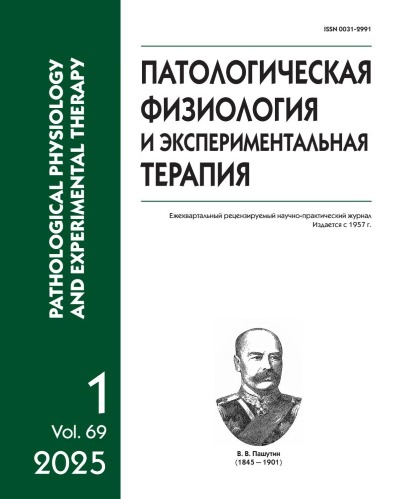Clinical efficacy of the polypeptide drug Cortexin in the treatment of circulatory and post-traumatic disorders
DOI:
https://doi.org/10.48612/pfiet/0031-2991.2025.01.111-116Keywords:
cerebral ischemia, cognitive skills, Cortexin, peptide drugs, posttraumatic disordersAbstract
Pathological brain remodeling is one of the most dangerous risk factors that threatens a person's full-quality life due to the dysregulation of other body systems and direct impact on thinking, psychosomatic and analytical functions. Taking into account the special risk of central lesions for both biological and social activities of the patient, many Russian and international specialists are looking for new opportunities to improve both medical and surgical correction for cerebral disorders. This review summarizes major studies that convincingly demonstrated the effectiveness of including the polypeptide drug Cortexin into the complex therapy of post-traumatic and circulatory disorders to regenerate and improve cerebral tissue perfusion and restore cognitive skills of patients. The analysis of clinical studies of Cortexin revealed the composition of the evidence base for the extensive use of this peptide drug in various fields of medicine.Downloads
Published
2025-03-25
Issue
Section
Reviews
How to Cite
[1]
2025. Clinical efficacy of the polypeptide drug Cortexin in the treatment of circulatory and post-traumatic disorders . Patologicheskaya Fiziologiya i Eksperimental’naya Terapiya (Pathological physiology and experimental therapy). 69, 1 (Mar. 2025), 111–116. DOI:https://doi.org/10.48612/pfiet/0031-2991.2025.01.111-116.






